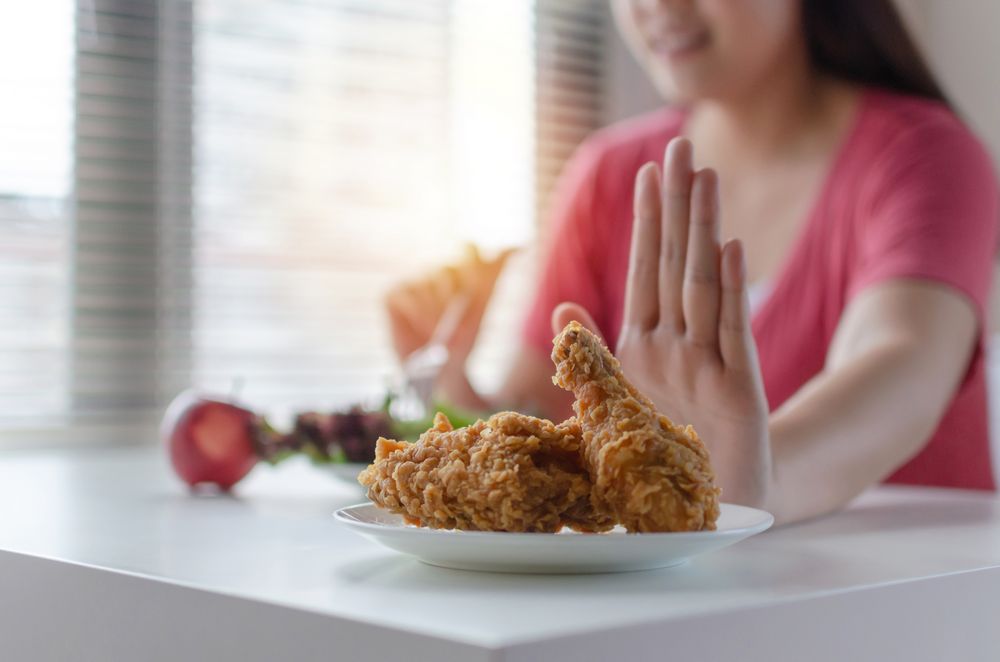
Ending Emotional Eating
So how do you end emotional eating?
WHAT IT TAKES TO STOP
Emotional eating is a heavily ingrained habit or addiction if you will. Many people have the issue and don’t even know that they do. And for those who are aware, they know deep down that it’s not going to be something that one just ‘stops’ doing.
If it were that easy then everyone could do it and you would have likely stopped a long time ago. But unfortunately it’s not.
The reason it’s not that easy is because overeating does something for you. It provides an essential service if you will to your psychology. What it does is help you regulate your emotions, usually anxiety.
Anxiety is very uncomfortable and difficult to tolerate for long periods. It makes us tense, not breathe well, gives us headaches, stomach pains, sleeping problems and just generally feeling like we’re always, always in a state of urgency and alarm. Not fun.
So it’s no wonder we turn to something, anything to help us regulate (soothe) our anxiety. We’re trying to get a break from the constant tension and stress and food is one way to do that.
Especially the ones that make us fat. It’s too bad that foods like leafy greens, celery, grapefruit and chicken breast don’t do it for us. Nope, it has to be foods that make us gain weight and the more the food does (like chocolate), the bigger the “hit” we get from it.
(Someone had a good laugh when they designed our metabolic system that’s for sure.)

Trying to Stop Emotional Eating
TRYING TO STOP
So we can’t simply stop or end our emotional eating because if we did then we’d have to find some other way of soothing that anxiety. You often hear smokers say that they are afraid to quit because whenever they’ve tried they ended up gaining weight.
In other words they were able to stop smoking but they needed to replace the hit they were getting from it which they did, in food. Nicotine for carbohydrates. Their friends then pat them on the back for breaking freeof the habit when in reality they simply traded one addiction for another.
And it’s the same with food. If you stop cold turkey and go from eating an extra box of cookies every night to some herbal tea that’s great but it won’t last unless you can find a way to manage the anxiety.
And that’s why everyone says you need to get to the “root” of your emotional eating to cure it and they are correct. But what they don’t offer is a “how.” Or I should say they do give you a list of ideas to calm your anxiety but none of them work long term.
Some examples of popular suggestions people give to deal with your anxiety are:
– Breathing Exercises. These are great to do and do help alleviate some stress but the effect is temporary and you are back to square one in under an hour.
– Taking a Bubble Bath. Very therapeutic but most of us don’t have time to take a long bath every night.
– Going for a Walk. Excellent suggestion with tons of benefits and highly recommended, but it won’t stop your emotional eating.
– Meditation. Similar to breathing exercises above.
– Yoga. Again a great practice but you will still want to overeat.
You get the picture. Many of the above suggestions are healthy and great to incorporate into your life but they are not the mechanism to regulating your anxiety. They provide some relief but don’t last nor do they build upon each other – meaning you won’t become calmer and calmer the more you go for a walk. You’ll have to start from scratch again each morning anxiety-wise, although your muscles will adapt and get longer term benefits.

The Root of Emotional Eating
GETTING TO THE ROOT
Getting to the point where you can regulate your emotions requires that you go through a process that can take up to 5 years. You will feel gradually better as you go along so it’s not like you have to wait 5 years to get some relief but that is the amount of time it takes if you take your emotional work seriously.
Notice I said you need to go through a process and not try a certain method or use this one special technique that’s new. It means adopting some new practices and doing them daily or weekly for the entire 5 year period.
There are 2 main aspects to dealing with your anxiety.
1- Is to become aware of it and figure out what it is specifically you are anxious about.
2- To face it over and over again.
So the process you are going to put yourself through will require that you do things to 1, continually get in touch with your anxiety so you can become more and more aware of what’s going on in your subconscious, and 2, confront it over and over again.
Your anxiety usually isn’t about the fear of heights or tight spaces etc., it’s more likely to be about other people. For example you may be a very serious or angry person who is afraid to let their guard down and show some vulnerability. Or the reverse, very shy and timid and afraid to assert themselves.
Anxiety is usually found in relationships in some form and we need to get in touch with what we specifically are afraid of and how to face it head on.

The Path to Emotional Improvement
The ways to do that are as follows:
– Therapy
– Free Online Group Therapy
– Having honest conversations with those closest to you.
Working with a good therapist will help you polish and refine your exact issue. Once you know your issue you can then go on and process it further using the other tools above.
So your 5 year process will be going to therapy (only for a short time), then group therapy once per week, journalling 5 mins per day and talking with those closest to you like you parents, siblings, friends etc.
You don’t have to follow that exact schedule as you can do more or less depending on how much time you have, but as long as you are doing something consistently you will get better. Those tools above get you in touch with the inner you and then you take how you feel into the world and confront the situations that make you afraid, like asking for a raise or saying no more often etc.
I hear you asking, “So if it takes years to get to the root of our emotional eating then what do we do about the overeating? It’s not healthy to be that way.”
I’m glad you asked.

Emotional Eating at Night
METHODS TO MANAGE THE FOOD ISSUE IN THE MEANTIME
Distraction – Most people overeat at specific times of the day. They usually don’t have a problem mid-morning say after breakfast where they just HAVE to eat donuts and go out and binge on a box or two. It’s usually around mid afternoon where they open the fridge and start looking for a snack and especially at night after dinner where they aren’t hungry anymore but want something anyway.
If they watch TV at night then that’s a big emotional eating window too.
So with distraction you are in effect trying to figure out your windows of eating and deciding to do something other than eating instead, until that window has elapsed and you don’t feel like eating anymore, or at least don’t feel an overwhelming urge to do so.
Some of the unhelpful recommendations above can be helpful in this case (breathing, bubble baths). That may sound like I’m contradicting myself but remember they were prescribed to manage anxiety and I’m saying they can be useful as distractions to get yourself ‘through’ something.
You can also take up a hobby such as knitting. I believe there’s a knitting club online that practice and support each other as a way to keep themselves busy while watching TV at night. They knit to keep their hands and minds busy (distracted) and so they aren’t focused on food or their anxiety.
The only problem is that at one point you’re going to run out of closet space to store your new, wool sweaters in and so you will tend to want to do other things and will likely eat here and there. In that case what we do is …
Food Management – When you just have to eat something and it’s pointless to even try to stop yourself then managing the food you eat is your best strategy. What you want to do is try to find a food equivalent to what you were about to eat that’s healthier.
Or, eat the same food but a healthier version of it. In the first instance that could mean eating a chicken Caesar salad with high fat dressing and bacon and all the fixings instead of a few slices of garlic bread as an appetizer. There are less carbs in your healthier option yet still lots of food volume and lots of flavor.
In the second instance it could mean eating a cake with lots of fruit and sweetener to give it flavor instead of sugar. Same good taste and eating experience while biting into some moist cake but with less of an effect on your weight.
The EatingLove Guide has many other suggestions and I suggest you take a quick look here.

Call to Adventure
There are many other ways that are covered in the guide but that is the gist of it. Two different ways of getting through the emotional eating part and even losing weight while you are working on the root, on the anxiety.
If it seems like a lot of work that’s because it is. But don’t be put off by it because the payoff is even bigger. Way bigger.
Working on your anxiety will improve you entire life. Your weight, you health, your relationships, what job you have, how disciplined you are, how you feel everyday, how you are with your kids and spouse or friends.
It makes you into a new person and opens up doors you never knew existed, resulting in a happy, fulfilling life.
Take it seriously and soon. It’s the best investment you’ll ever make.
…

THE EATING LOVE GUIDE (FREE)
The Eating Love Guide has helped many people regain control of their eating patterns, resulting not only in weight loss but also better health and improved self-esteem. To read it online, click here.

SUBMIT A POST!
To post your cheat meal, click here. To share your tips, wisdom and/or emotional journey, click here.


